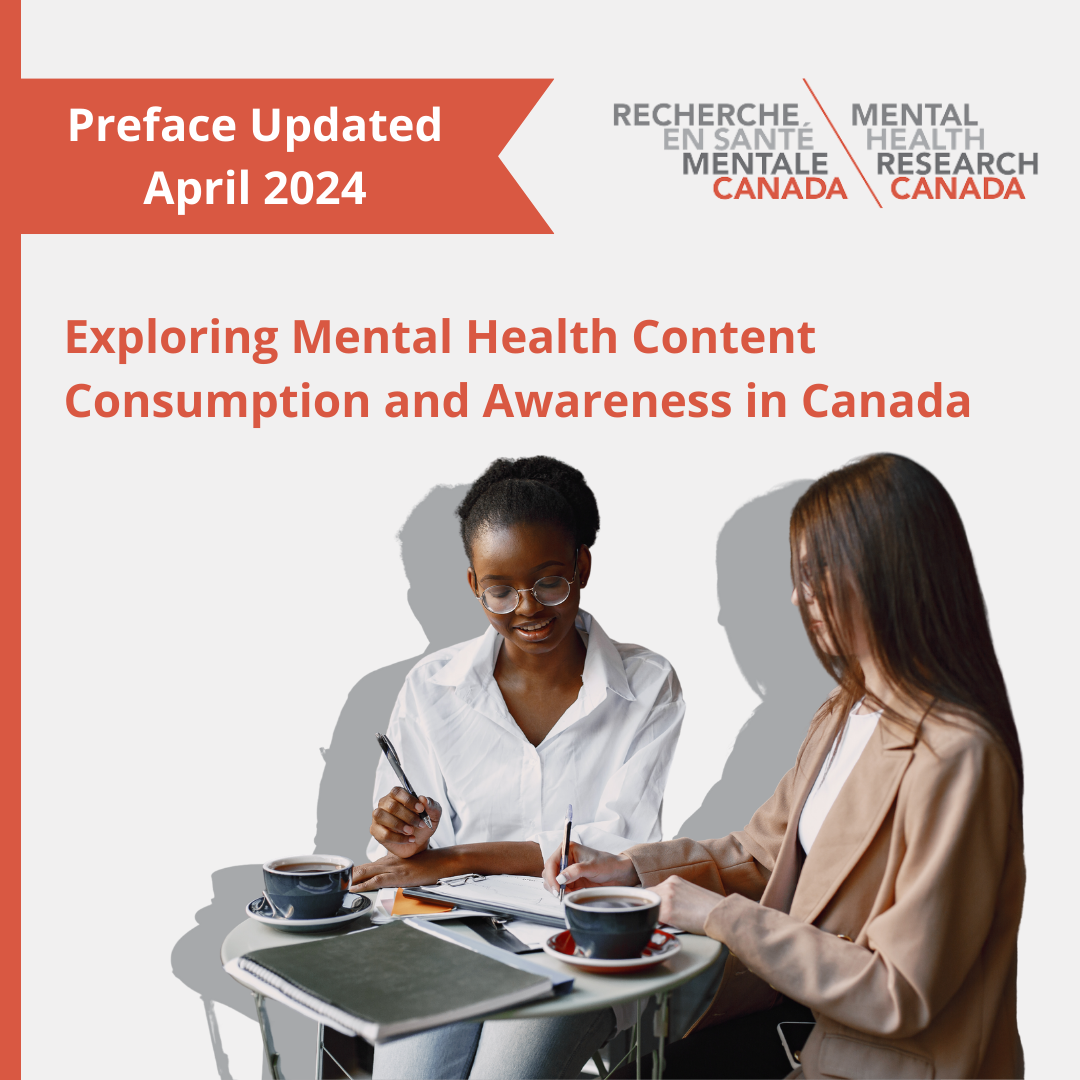Exploring Mental Health Content Consumption and Awareness in Canada
ABOUT THE RESEARCH BRIEF
The data in this report was collected by Pollara Strategic Insights during our national mental health polling initiative in April 2022, and features comparative analysis from the fulsome dataset collected between April 2020 and July 2022.
The analysis in this report represents 1,549 Canadians who answered five questions to assess their level of mental health literacy.
Due to the nature of self-reporting, it should be noted that the cultural background of the respondents may influence how they think about, understand and answer questions about their mental health.
MHRC asks Canadian survey respondents how frequently they think about mental health, talk about mental health or consume media about mental health.
April 2024 Update:
In recent months, an evolving understanding of mental health literacy has sparked much debate. While the survey questions featured in this report were initially proposed to be a measurement of mental health literacy, we now better understand these questions to be reflections on mental health content consumption - how frequently Canadians report they are thinking about, talking about, or consuming content about mental health. Consumption of mental health content does not necessarily equate with literacy on that subject.
We invite you to review a more recent report on the topic of mental health literacy, released in December 2023:
https://www.mhrc.ca/mh-literacy-brief
Findings indicate that levels of mental health literacy vary widely across the country. Our research reveals higher levels of mental health literacy in groups identified as struggling more than others throughout the pandemic, reporting higher average self-reported symptoms of depression and anxiety since April 2020:
Women
Younger Canadians (16-35 yrs)
Urban Canadians
Residents of Ontario
Canadians identifying as 2SLGBTQI+
Respondents completing the survey in English
Canadians with household incomes under $30K / year
This work may be one of the many starting points for reducing the inequities surrounding mental health as we work to mobilize these statistics to organizations who play a role in communicating reliable, credible and public-facing mental health information.
A collection of our previously released research briefs providing an in-depth investigation of our polling results can be found here.

